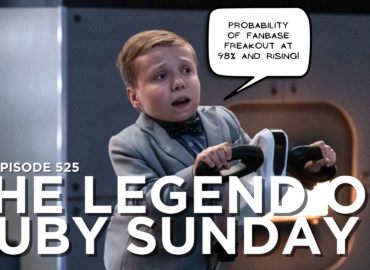We are appreciators, enthusiasts, and fanatics of certain television programs due in no small part to the captivating nature of the stories they tell. They are the creators and builders of worlds, the artists that add color, detail, and depth to an audio-visual experience that captures our imaginations, stimulates our minds, and often touches our hearts. With over 250 televised stories within Doctor Who, how does each writer put their individual and unique mark upon the tale being told? Can a producer or showrunner look to a repertoire of wordsmiths, knowing which ones can fulfil certain wishes or needs for the program’s trajectory in a given season? What aspects of fledgling writers stand out to make them ideal candidates to be given a first opportunity to write for the program?
This week, we look at the contributions of a series of beloved Doctor Who writers, classic and new, veteran and freshman. We discuss the nature of their individual craft, what impact their stories had upon the DWU both within their respective seasons and beyond, and what adept skills many of them demonstrate when penning a script for the Doctor. From the prolific Robert Holmes, to the acclaimed Paul Cornell, to brilliant newcomer Sarah Dollard, the pen so often proves mightier than the sonic screwdriver.
News Links:
- Patrick Ness Turned Down Writing For Who
- Michelle Gomez Is Open To Appear In Class
- First Two Series 10 Episodes Wrap Up Filming
- Deep Roy Returns To Doctor Who
- Moffat Alludes to Capaldi Staying On For Series 11…
- …But Talks About the “Upheaval” of His Final Episode
Podcast: Play in new window | Download | Embed
Subscribe: Apple Podcasts | Spotify | RSS






Being the geeky guy here, but as parts in high profile productions go (and just barely making it in under the past 10 years), Andy Serkis went CGI free in The Prestige.